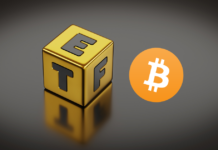The Hedera Token Service (HTS) was recently launched on the Hedera mainnet.
As a decentralized public network, Hedera ensures that developers have the ability to create secure, fair, and fast applications. By launching the Hedera Token Service, Hedera also hopes to create a successful token ecosystem that will offer support to token issuers, application developers, and end-users.
Offerings of Hedera Token Service (HTS)
The Hedera Token Service seeks to offer configuration and issuance services. Hedera Token Service will also help to configure and issue native fungible and non-fungible tokens (NFTs) in a cheaper, secure, and faster way.
Hedera Token Service will deliver account level configurable compliance and native programmability to assets that are tokenized under the service. With HTS, the issues of deploying expensive, faulty, and slow smart contracts are resolved.
Modern-day applications and websites are constantly seeking to issue, manage, and configure their tokenized assets. While meeting the functional requirements of such applications, it is equally important to create a successful partnership to leverage and build their services and protocols. For this reason, Hedera Token Service, as the next phase of Hedera’s development, seeks to offer the network effects that meet these functional requirements. Through interconnected applications, HTS also hopes to aggregate the value of tokenized assets and establish new active accounts.
Hedera Token Service (HTS) Goes Live With Over 60 Partners
Over 60 partners make up the initial ecosystem for Hedera Token Service. These partners cut across different categories of players in the industry: custody providers, token issuers, and wallet providers. Not to mention security auditors, network explorers, exchanges, and standards boards and systems integrators.
Of these 60 partners, some have integrated, some are in the integration process, and others are exploring HTS to provide support for applications that issue tokens across decentralized finance, payments, supply chain, energy, and others.
When applications are built on HTS, they become issued on the Hedera public network. In this way, the disruption of tokenization can be embraced by businesses in a performant, compliant, and secure way. The disruption of tokenization will also allow the monetization of an organization’s assets, access to new and growing token markets, and improved payment settlement efficiency.
Features of Hedera Token Service
In building HTS, Hedera seeks to fulfill its goal of providing enterprise-grade performance, functionality, stability, cost, and inbuilt compliance configurations. In this way, Hedera Token Service plans to meet the requirements of both new and established companies looking to delve into the world of tokenization.
For this reason, HTS has rolled out some tremendous features:
- Flexible configurations
On Hedera Token Service, deployment of fungible and non-fungible tokens comes with flexible configurations. Such configurations also include atomic swaps and the forthcoming scheduled transactions.
- Native tokenization without smart contracts
Tokens that are issued with HTS become native to Hedera. In this case, the Hedera Token Service does not have to configure expensive, slow, and faulty smart contracts. Such tokens also adopt the same security, efficiency, and performance as HBAR cryptocurrency. They also pass through safe deployment by leveraging on common programming languages.
- Predictable and low transaction cost
HTS seeks to offer predictable and low transaction fees on the Hedera public network. With less than 1¢ USD, any sum of a tokenized asset can be transferred.
- Meeting compliance needs
At the account level, Hedera Token Service gives businesses the ability to meet compliance needs, especially during key and token configurations. Such compliance needs include verifying and freezing, managing token supply, transfer, and much more.
- Governance and stability
The decentralized governing body of Hedera is made up of global organizations. This governing body ensures that there is stability in the network, a no-fork guarantee, and decentralized decision making.
2021 Roadmap for Hedera Token Service (HTS)
Hedera’s goal is to achieve mainstream adoption. In fulfilling that goal, the ecosystem of Hedera Token Service (HTS), together with its partners and integrations, must be fully built-out. As a result, there should be a continuous effort to integrate HTS into exchanges, wallets, explorers, custody providers, and others.
More functionalities to be added on HTS include the development of scheduled transactions in Layer 1 to improve programmability. The 2021 roadmap can also be seen on the Hedera website.
This time last year, decentralized finance markets achieved a major milestone by reaching a billion dollars in total value locked. Twelve months on, the sector has exploded, expanding by a whopping 3,400%.
HBAR Price
HBAR, the native token of Hedera, is currently trading at $0.140267, with a market cap of $1,005,076,704 and a 24-hour trading volume of $80,953,340.
Join us on Telegram to receive free trading signals.
For more cryptocurrency news, check out the Altcoin Buzz YouTube channel.



























